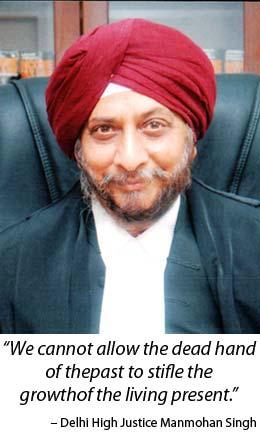Indian law changed to adapt to changing times

She studies in Greater Vancouver’s Douglas College
He works in British Columbia.
But the Indian origin couple can’t get their marriage registered in India, without being present in their home country.
So they challenged an India’s law and this Valentine’s Day paved the way for overseas Indian couples to get their marriages registered in absentia via video-conferencing.
Justice Manmohan of the Delhi High Court, allowing the application of the BC-based couple, said that the rule mandating physical presence while applying for registration was "framed at a time when technology was nascent".
The court said the family members could take delivery of the marriage certificate once the couple confirms this through video-conferencing.
"The law has to adapt to changing times," the court opined.
It also said that developments that have changed the world and the way we view the world today were "unimaginable" and perhaps "beyond comprehension of the rule makers".
The court was hearing a plea filed by Ravinder Chadha, who sought permission to exempt his Canada-based daughter and son-in-law from personal appearance for registering their marriage and asked if they could do so via video-conferencing.
The court in its judgment said: "It is possible for a person living thousands of kilometres away from Delhi or anywhere in India to simultaneously communicate with another party. Also, technology has enabled parties today to attest documents digitally and ensure digitally secure transmission through the internet."
"The objective and philosophy underlying the Information Technology Act is based on
these developments," the judge said in his order, which has only now been made available.
"In these circumstances the inaction or indifference of the state to recognise these developments and provide for a suitable mechanism to facilitate (what is required to be done), i.e., registration of marriage of spouses separated by distance, has to be addressed," Justice Manmohan observed.
The court directed the registering authority of the Hindu Marriage Act to accept the application for registering the marriage of Chadha's daughter and son-in-law through their power of attorney holders.
It further asked the registrar to satisfy himself about the legality and validity of the power of attorney as well as the newly-wed couple through video-conferencing, as compelling them to visit India only for this purpose would entail avoidable delay and expenses.
Chadha's daughter is pursuing higher studies at British Columbia's Douglas College and her husband also works in the province.
The court also suggested that the government evolve suitable mechanism with a mix of technology by incorporating video-conferencing, authentication of identities by embassies and attestation of signatures in a similar manner.
"The law has to adapt to changing times. Here, the requirements spelt out half a century ago are acting as impediments, even though technology has enabled myriad solutions to the authorities," the court said.
The court said: “We cannot allow the dead hand of the past to stifle the growth of the living present.”
Other overseas Indian couples praised the ruling, according to media in India.
Aakash Mehra, who married last year, is hopeful that technology will make the “long and tedious” process of registering marriages easier.
“The list of documents required for marriage registration in Delhi is different in every zone. Delhi government has published a checklist on its website as it is different in different areas.
“Anyway, after I got my documents in order, we went to the additional district magistrate’s office, taking the day off. I found that the application form I had downloaded was the wrong one. Then we had to give some additional documents that we didn’t know about.
“We also had to get someone with a PAN card who was present at our wedding. We even had an argument over the size of the photographs,” said Mehra, according to the Calcutta Telegraph.
“By then, I had had enough. Next day, I went alone, paid some money to the clerk, got another date. On that day, I received my marriage certificate. Technology will streamline these processes and hopefully, this order will someday become the norm.”
Leave a comment









